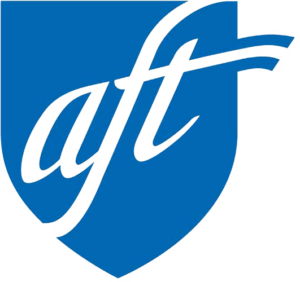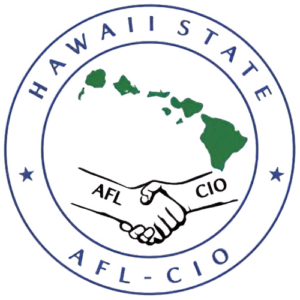ARTICLE XXIV, GRIEVANCE PROCEDURE
A. DEFINITION
A grievance is a complaint by a Faculty Member or the Union concerning the interpretation and application of the express terms of this Agreement. All matters under this Article, including investigations, shall be considered confidential. Information pertaining to the decision of an Arbitrator may be subject to disclosure under the provisions of Section 92F, Hawaii Revised Statutes.
B. GENERAL
1. Faculty Members are encouraged to work out grievances with their immediate superiors on an informal basis, including voluntary mediation, without resort to the formal Grievance Procedure, whenever possible. If it is not possible to resolve the grievance informally, and the Faculty Member desires to pursue the matter, the procedures under Paragraph C. below shall apply.
2. Any information pertaining to the grievance in the possession of the Employer needed by the grievant or the Union in behalf of the grievant to investigate and process a grievance shall be provided to them on request within seven (7) working days.
C. PROCEDURES
1. Requirements for Filing a Formal Grievance.
A grievance must be submitted in writing and shall contain (1) a statement of the facts concerning the grievance, (2) the specific provision of this Agreement alleged to have been violated, (3) the relief requested, and (4) whether the Faculty Member attempted an informal adjustment of the grievance and, if so, with whom.
The Faculty Member may request the assistance and representation of the Union in the Grievance Procedure. Alternatively, the Faculty Member may file a grievance and have the grievance heard without intervention of the Union provided the Union is afforded an opportunity to be present at the conference(s) with the grievant, in which case a copy of the grievance shall be furnished to the Union. Any adjustment made shall not be inconsistent with the terms of this Agreement.
A grievance must be filed within twenty (20) calendar days or within forty-five (45) calendar days in the case of a class grievance, of the date following the alleged violation giving rise thereto, or the date on which the Faculty Member or the Union first knew or reasonably should have known of such alleged violation, or the date on which either party informs the other that informal attempts to resolve the grievance are concluded, whichever date is later.
There shall be no obligation by the Employer to consider any grievance not filed within the specified time limit and in accordance with the specific procedure stated in each step.
2. Formal Grievance Procedure.
The Employer and the Union may, by mutual agreement, waive any or all of the steps and proceed directly to Step 3.
a. Step 1. A grievance shall be filed with the Chancellor or Provost, or the respective designee (herein all referred to as Chancellor or Provost). The Chancellor or Provost shall schedule a grievance meeting with the grievant and/or the grievant’s designated representative within fifteen (15) calendar days after receipt of the grievance and shall issue a decision in writing to the grievant within fifteen (15) calendar days after the close of the meeting.
b. Step 2. If the response at Step 1 does not resolve the grievance, the grievant may appeal the Step 1 response by filing an appeal with the President of the University or the President’s designee within fifteen (15) calendar days after receipt of the Step 1 response. Such appeal shall be in writing and shall specify the reason why the Step 1 decision is unsatisfactory. The President need not consider any grievance in Step 2 which encompasses different alleged violations or charges than those presented in Step 1. The President or the President’s designee shall schedule a grievance meeting with the grievant and/or the grievant’s designated representative within fifteen (15) calendar days after receipt of the appeal or grievance is filed and shall render a response in writing to the grievant within twenty (20) calendar days after the close of the meeting.
c. Step 3. Arbitration. If the grievance has not been settled at Step 2, then within thirty (30) calendar days after the receipt of the written decision of the President or the President’s designee, the Union may request arbitration by giving written notice to that effect, in person or by registered or certified mail, directed to the President or the President’s designee. Representatives of the parties shall attempt to select an Arbitrator immediately thereafter.
If agreement on an Arbitrator is not reached within fifteen (15) calendar days after the request for arbitration is submitted, either party may request the Hawaii Labor Relations Board to submit a list of five (5) Arbitrators. Selection of an Arbitrator shall be made by each party alternately deleting one (1) name at a time from the list. The first party to delete a name shall be determined by lot. The person whose name remains on the list shall be designated the Arbitrator.
Any Arbitrator duly selected by the parties shall have jurisdiction to consolidate arbitrations of overlapping or related matters that may be economically tried together, upon motion of a party and for good cause shown.
No grievance may be arbitrated unless it involves an alleged violation of a specific term or provision of the Agreement. The Arbitrator shall not consider any new alleged violations or charges than those presented initially.
1) The parties may by mutual agreement request the Arbitrator to conduct an informal hearing. Informal hearings shall be conducted without reporters or transcriptions. There shall be no briefs filed by either party. The Arbitrator shall issue a decision within twenty-one (21) calendar days from the adjournment of the hearing. The decision of the Arbitrator shall be limited to a written statement of the Arbitrator’s conclusion setting forth briefly the factual basis for the decision, and shall be within the scope set forth below in 3).
2) If the Employer disputes the arbitrability of any grievance, the Arbitrator shall first determine whether the Arbitrator has jurisdiction to act; and if the Arbitrator finds no such power, the grievance shall be referred back to the parties without decision or recommendation on its merits. The Arbitrator shall render an award in writing, no later than thirty (30) calendar days after the conclusion of the hearings or, if oral hearings are waived, then thirty (30) calendar days from the date statements and proofs were submitted to the Arbitrator.
3) The decision of the Arbitrator shall be final and binding upon the Union, its members, the Faculty Member(s) involved in the grievance, and the Employer. There shall be no appeal from the Arbitrator’s decision by either party, if such decision is within the scope of the Arbitrator’s authority as described below.
a) The Arbitrator shall not have the power to add to, subtract from, disregard, alter, or modify any of the terms of this Agreement. The Arbitrator’s award must be consistent with the terms of this Agreement.
b) When the Arbitrator finds that any disciplinary action under Article XVIII was improper, the Arbitrator may set aside, reduce, or otherwise modify the action, and may award back pay to compensate, wholly or partially, for any salary lost.
The fees of the Arbitrator, the cost of transcription, and other necessary general costs, shall be shared equally by the Employer and the Union. Each party will pay the cost of presenting its own case and the cost of any transcript that it requests.
d. Step 3A. Performance Judge. If the grievance involves the termination of a tenured Faculty Member or the termination of a non-tenured Faculty Member’s employment agreement prior to the expiration of its term on the stated grounds that he or she has failed to meet the performance requirements of his or her position and the grievance has not been settled at Step 2, then within thirty (30) calendar days after the receipt of the written decision of the President or the President’s designee, the Union may request a Performance Judge by giving written notice to that effect, in person or by registered or certified mail, directed to the President or the President’s designee.
The Performance Judge shall be a neutral third party selected by representatives of the parties from a list of persons whom the parties have mutually agreed are eligible to serve as Performance Judges for the duration of this Agreement. The parties, by mutual agreement, may add or delete individuals from the list of Performance Judges. Selection of a Performance Judge for a grievance shall be by mutual agreement. If the parties are unable to agree, selection of a Performance Judge shall be made by each party alternately deleting one (1) name at a time from the list of Performance Judges. The first party to delete a name shall be determined by lot. The person whose name remains on the list shall be designated the Performance Judge. The Performance Judge shall use the following conditions as tests in reaching a decision on whether the Employer’s action against the Faculty Member for failure to meet the performance requirements of his or her position was with or without merit:
1) The evaluation process and its consequences were discussed with the Faculty Member;
2) The Faculty Member was made aware of his or her current job description and job related performance requirements;
3) The evaluation procedures were observed, including providing the Faculty Member the opportunity to meet, discuss, and rebut the performance evaluation and apprising the Faculty Member of the consequences of failing to meet performance requirements;
4) The evaluation was fair and objective;
5) The Faculty Member was provided feedback during the evaluation period and, as appropriate, the Faculty Member was offered assistance in order to improve and meet performance requirements;
6) The evaluation was done without discrimination; and
7) Prior to any termination, the feasibility of transferring the Faculty Member to another position for which the Faculty Member qualifies was considered.
If it is alleged that the termination was not due to a failure to meet performance requirements but for disciplinary reasons without just and proper cause, the Performance Judge shall first proceed with a determination on the merits of the Employer’s action under the conditions above. If the Performance Judge determines that the termination may be based on reasons other than a failure to meet performance requirements, the Performance Judge shall then determine, based on appropriate standards of review, whether the disciplinary action was with or without proper cause and render a final and binding decision.
A Performance Judge is subject to the other requirements imposed on Arbitrators in Step 3 of these Procedures.
D. CLASS GRIEVANCE
The Union may file a Class Grievance if it affects two (2) or more Faculty Members whose complaints involve the same questions of fact and contract provision(s) so that a decision as to one (1) grievant shall be decisive as to all members of the Class.
In filing a Class Grievance, the Union shall set forth, in addition to the requirements for filing a formal grievance, (1) the questions of fact which are common to all members of the Class, (2) the identification of all members of the Class known to the Union, (3) a statement as to whether or not the members of the Class have been notified and given opportunity to be included or excluded from the Class, and (4) the name of the Faculty Member who shall serve as representative of the Class for the purpose of determining the questions of fact and alleged contract violation.
In matters of contract interpretation affecting the entire bargaining unit, the Union may file a Class Grievance on its own initiative. Such a grievance shall identify the sections of the Agreement being violated through the policies or the actions of the Employer. The Union shall represent the entire bargaining unit in the Class Grievance, there shall be no exclusion procedure or required notification of the bargaining unit, and the resolution of the grievance shall apply to the entire bargaining unit.
If a Class Grievance involves more than one (1) component of the University, i.e., the UH-Manoa, the UH-Hilo and the UH-West Oahu, or the Community Colleges, the grievance may be filed initially at Step 2.



